 Back to Blogs
Back to Blogs
Hospitality Demand Generation – From Feature To Core
Summary of article published in Tnooz.com -- July 2015
Demand generation has always been important to hotels, why else have sales departments? But lately it has gone from a function of varying importance to become the absolute center of the world of hospitality and it’s turning the tables everywhere.
What’s the burning issue changing the face of hospitality?
Despite rising occupancies and ADRs, rising demand generation costs are crushing profit growth. Hoteliers face uphill fights and new and better approaches are needed to respond. With costs of acquisition growing twice as fast as RevPAR, the picture looks good on the top line but not so good at the bottom line.
Additionally, smart owners have woken up to the disguised costs that appear as lower ADRs from wholesale / merchants. Fundamentally there is no difference between paying a commission to an OTA and giving another OTA a net rate that amounts to the same effect.
To know where we’re going, we need to understand where we came from
It took a while to get to the point where hotel technologies that were formerly critical to high performance are now hygiene rather than core factors, and that evolution may explain where we are and where we’re headed.
Hospitality moved from PMS centric… to CRS and Revenue Mgt. centric:
[While Westron (1974) arrived before PMSs, Westron was a glorified filing cabinet. TI 990 PMSs and other early 1970s PMSs had a greater material impact and came before true CRSs such as Anasazi]
And then hospitality moved again, …from CRS and Revenue Management centric… to a Channel Management world:
Currently, we’d argue it is moving from a Channel Management world… to a Demand Generation centric world:
And every day there are more indications that Demand Generation and all the tools that assist it are increasingly critical. Among critical ingredients in effective Demand Generation, we see CRM/Loyalty and Predictive Analytics as critical:
In each of the earlier stages, the system at the core required new skills, new optimizations and shifted what was require to outperform the competition. PMS and CRS are still critical… in the way that running water is critical… we’d be livid without it, but we don’t give it much thought.
Revenue Mgt. and Channel Mgt. have had their heyday, but they too are on the way to becoming very important hygiene factors but not core competitive advantages. Even traditional demand generation and bid optimization are passé… good to have but not differentiators.
As it takes center stage, Demand Generation (with Internet-scale CRM) also requires new technologies such as predictive analytics, new architectures, and new open systems capable of flexible, autonomic orchestration.
The answer is not the same for every hotel, group or chain. In a way there are three broad possibilities. Hotels can:
- Innovate / differentiate in remarkable ways to find “Blue Ocean”
- Become part of a brand big enough to engage in demand generation
- Turn demand generation over to pros like Booking.com and Expedia
On the innovation front, authenticity and novel experiences open the door to all sorts. One of our clients in China, faced with giant incumbents, sought innovation in one of its brands via an aggressive eco-friendly posture. URBN, a brand of the Cachet Hotel Group, is China’s first carbon neutral hotel, and derives a lot of its demand from climate conscious guests who specifically search for carbon neutral properties.
As for joining a brand, it is a well-trodden path and requires no explanation (other than understanding that corporate sales, loyalty and brand distribution aren’t free any more than Web bookings are free). Loyalty redemptions, brand/repco program fees and the benefit of corporate sales are best treated as opportunity costs like any others.
Turning demand generation over to Booking.com or Expedia may deserve a bit of an explanation and it’s not as odd as it may sound. For example, Citizen M knew as it started that the costs to introduce their brand, get enough awareness in several continents, and on top of that generate tactical demand were prohibitive. So it treats Booking.com as a strategic partner to generate demand and focuses instead on the in-house experience “wonderful”.
In the words of an hotelier: “Our core expertise is running hotels, not running PPC campaigns and designing websites. Our preference has always been to work with fewer providers for complete solutions”
While in previous eras hoteliers might have meant the above with regards to individual software systems, increasingly this point of view includes demand generation as a service.
What hoteliers and owners alike want to hear is that a vendor can shift share and generate previously un-materialized demand. As OTAs like Booking.com start to provide the full technical stack for hotels (see BookingSuite at http://suite.booking.com/) as well as demand generation, that’s an increasingly attractive proposition for some.
Regardless of the chosen strategy (innovate, join a brand, rely on distributors), though, what we see everywhere is a focus on holistic demand generation as the most effective lever to achieve superior competitive performance in hospitality.
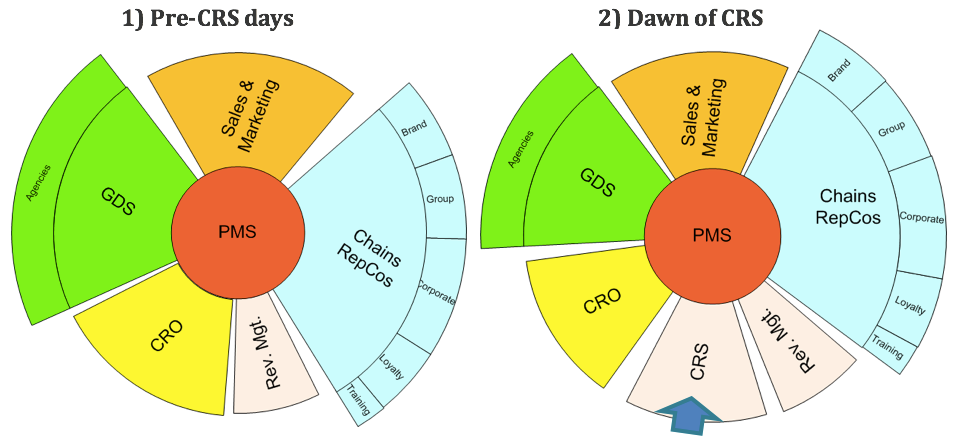
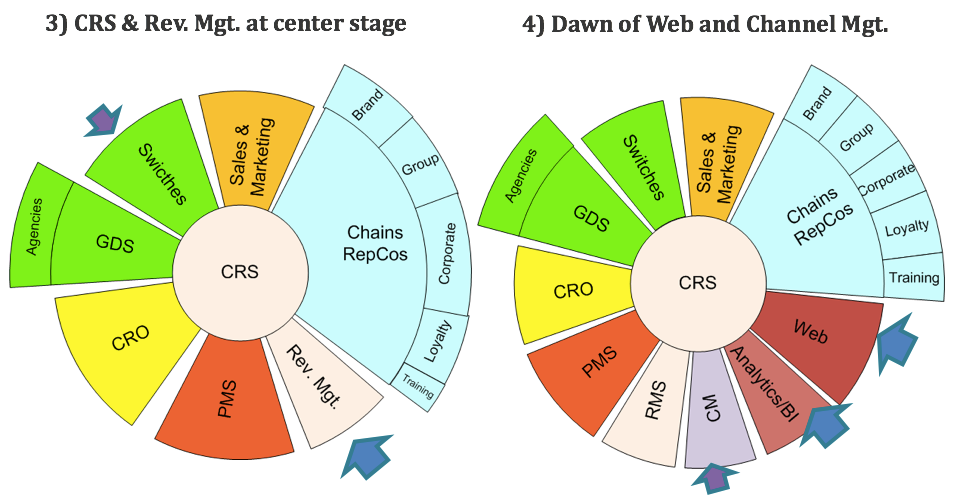
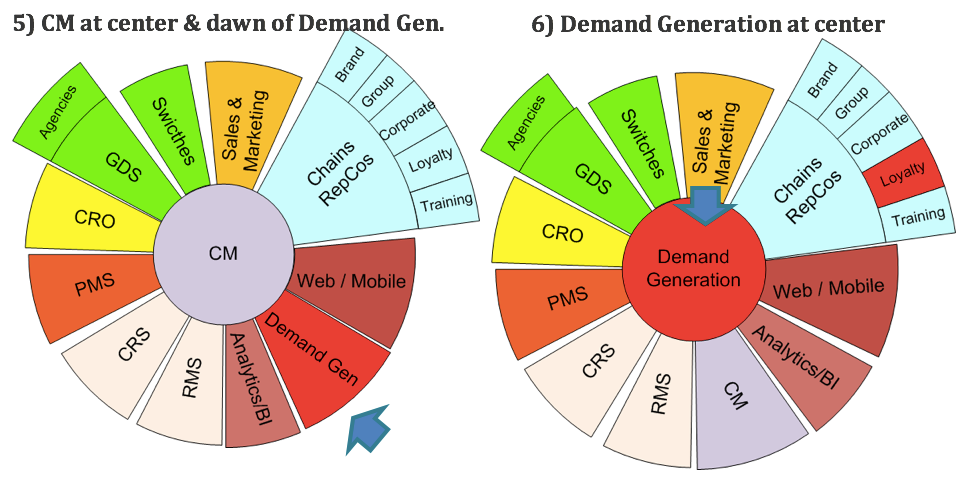
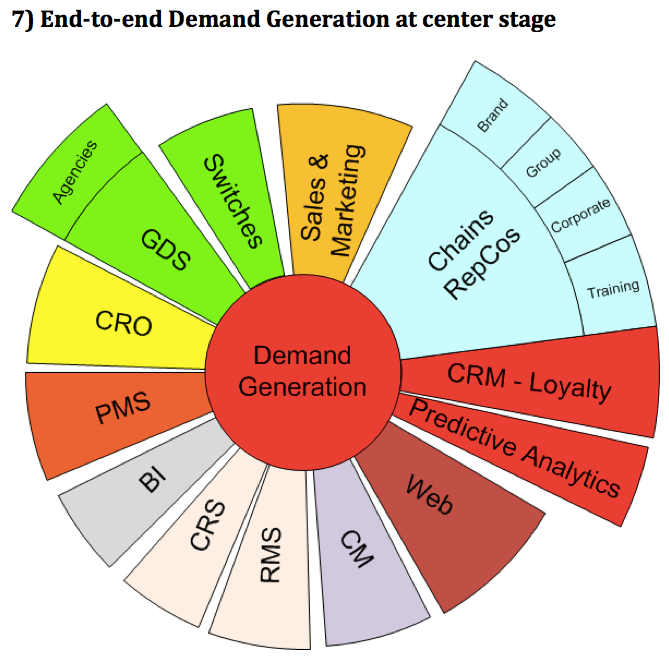
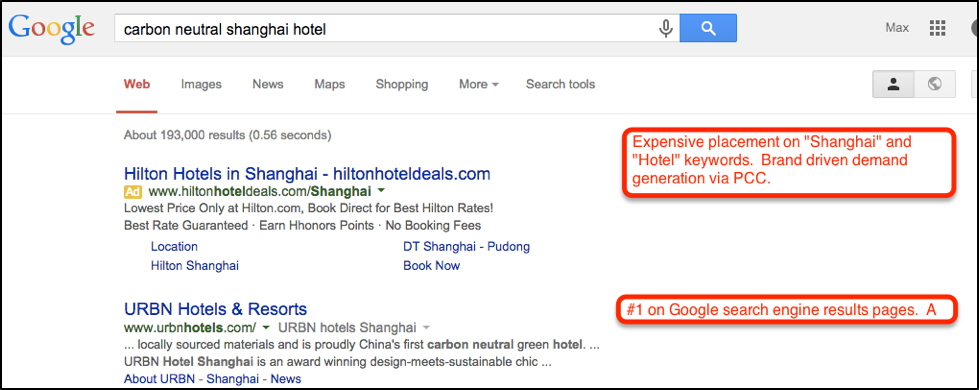


 Previous Post
Previous Post